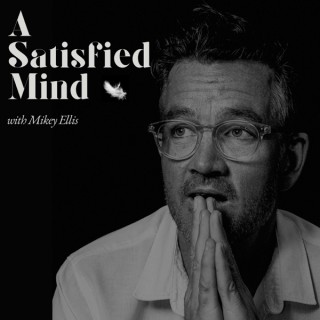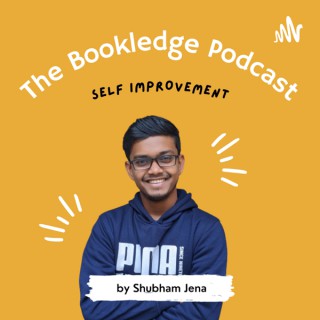Podcasts about book summaries
- 330PODCASTS
- 5,122EPISODES
- 26mAVG DURATION
- 7DAILY NEW EPISODES
- Feb 10, 2026LATEST
POPULARITY
Categories
Best podcasts about book summaries
Latest news about book summaries
- Make your commute count with these 15-minute nonfiction book summaries Mashable - Feb 2, 2026
- Book Summary: The Law of Attraction by Michael J. Artificial Intelligence on Medium - Dec 27, 2025
- Book Summary “Don’t Make Me Think” UI on Medium - Dec 23, 2025
- Profit from 2,000+ Bite-Sized Book Summaries for Just $40 BizToc - Nov 21, 2025
- Deep Work — Book Summary Deep Learning on Medium - Oct 8, 2025
- Ritual & its Consequences: book summary Jessitron - Oct 5, 2025
- Ask Book Summary & Review Sources of Insight - Jul 22, 2025
- this is useful – but not true nextbigwhat - Jul 21, 2025
- Life and Death on a Scorched Planet: What I Learned From “The Heat Will Kill You First” Forte Labs - Jul 21, 2025
- The Mom Test by Rob Fitzpatrick- Book Summary UX on Medium - May 17, 2025
Latest podcast episodes about book summaries
"The Myth of Talent and the Power of Practice"
Ep 12: The Subtle Art of Not Giving a F*ck — Key Lessons That Actually Change Your Life
In this episode, I break down The Subtle Art of Not Giving a F*ck by Mark Manson — so you don't have to read it yourself.This isn't your typical self-help book. Instead of telling you to “think positive,” this book challenges everything we've been taught about happiness, success, and caring too much. I walk through the key lessons, biggest takeaways, and real-life applications of The Subtle Art of Not Giving a Fck*, and explain what actually matters — and what doesn't.If you're overwhelmed, burned out, tired of toxic positivity, or just curious why this book went viral, this episode is for you.In this episode, we cover:The core message behind The Subtle Art of Not Giving a Fck*Why caring less can actually improve your mental healthWhat Mark Manson gets right (and what's overrated)How to choose what deserves your energyWho this book is actually for — and who can skip itThis is an honest book review and summary, designed to help you decide if this book is worth your time — without the fluff.Perfect for fans of:Self-help book summariesPersonal growth and mindset shiftsMental health and self-improvementBook review podcasts“I read this book so you don't have to” contentAnd that's the breakdown. I read the book so you didn't have to, but now I want to hear from you: What is one thing you're officially choosing to stop giving a f*ck about this week? > Drop your answer in the comments—I'll be jumping in to reply to as many as I can. If this deep dive saved you some time or gave you a new perspective, do me a huge favor: hit that subscribe button and tap the notification bell. It's the best way to support the show so I can keep doing the reading for you.
The Art of Possibility by Rosamund Stone Zendar and Benjamin Zendar - Book Summary
The Art of Possibility by Rosamund Stone Zendar and Benjamin Zendar - Book Summary
#youtube #entrtreprenurship 24 Book Summary + 2 webinars bundle – 23 of my best business book breakdowns Get it here: https://selar.com/paulfohbookpromoJoin My Telegram Community: https://selar.com/salesfactorytelegramcommunityFisayo Fosudo Online Course: https://fisayo.selar.com/page/tcbmTransfer with SENDOVA: https://sendova.co.uk/ Book Me For Coaching – Corporate or Personal Sales CoachingSchedule a session: https://calendar.app.google/mdvCzYSyTkSnsETx6Read the article: https://paulfoh.substack.com/p/owning-manhattan-57-lessons-fromFor brand partnerships and inquiries email: hey@paulfoh.com Follow me on Instagram: https://www.instagram.com/paulfoh/Follow me on Linkedin: www.linkedin.com/in/paul-foh-60a09720
-----WHERE TO FOLLOW US----- YouTube: https://www.youtube.com/bestbookbits/?sub_confirmation=1 Website: https://bestbookbits.com Audio: https://bestbookbits.podbean.com/
"How to Create Killer Blogs, Podcasts, Videos, Ebooks, Webinars (and more) that Engage Customers and Ignite Your Business"
The One Thing by Gary Keller and Jay Pappasan - Book Summary
The One Thing by Gary Keller and Jay Pappasan - Book Summary
these still hit different
"How Millennials Became the Burnout Generation"
Let's Talk Money by Monika Halan - Book Summary
Let's Talk Money by Monika Halan - Book Summary
"A must-read classic of modern science"
Scary Smart by Mo Gawdat - Book Summary
Scary Smart by Mo Gawdat - Book Summary
PDF, Infographic, Ad-free Audiobook and Animated Book Summary / Talking to Strangers Free Audiobook /
The Law and the Promise by Neville Goddard | Manifest Your Dreams | Book Summary
-----WHERE TO FOLLOW US----- YouTube: https://www.youtube.com/bestbookbits/?sub_confirmation=1 Website: https://bestbookbits.com Audio: https://bestbookbits.podbean.com/ Discover the transformative power of imagination and belief. In this video, we break down The Law and the Promise by Neville Goddard, a classic guide to understanding how your inner assumptions and beliefs shape your reality. Neville Goddard explains how to align your thoughts, feelings, and imagination to manifest the life you desire. This summary highlights the key principles, real-life examples, and practical techniques to help you harness your creative power. Perfect for anyone interested in manifestation, personal growth, and spiritual development. ⭐ What You'll Learn: How imagination is the creative force behind your reality The power of assumption and living “in the end” Why feeling is the secret to manifestation Techniques to strengthen belief and visualize effectively How to turn dreams into tangible outcomes Inspiring real-life stories of manifestation If you enjoy Neville Goddard's teachings, manifestation, and personal transformation, make sure to like, comment, and subscribe for more book summaries!
"Amplifying Our Humanity Through AI"
Crucial Conversations by Joseph Grenny & 4 others - Book Summary
Crucial Conversations by Joseph Grenny & 4 others - Book Summary
57 Lessons from Ryan Serhant on Building a business and Real Estate Empire #241
#realestate #entreprenur 24 Book Summary + 2 webinars bundle – 23 of my best business book breakdowns Get it here: https://selar.com/paulfohbookpromoJoin "how to get your next 100 clients in 2026" https://selar.com/6261374173Join My Telegram Community: https://selar.com/salesfactorytelegramcommunity Book Me For Coaching – Corporate or Personal Sales CoachingSchedule a session: https://calendar.app.google/mdvCzYSyTkSnsETx6Read the article: https://paulfoh.substack.com/p/owning-manhattan-57-lessons-fromFor brand partnerships and inquiries email: hey@paulfoh.com Follow me on Instagram: https://www.instagram.com/paulfoh/Follow me on Linkedin: www.linkedin.com/in/paul-foh-60a09720Listen to my podcast on spotify: https://open.spotify.com/episode/4LvAqPWLJMTY7LqN4kig1C?si=mdKhixTRSfimpU93Br80xQ
"Life, Feeling, and the Making of Cultures"
The Lazy Genius Way by Kendra Adachi | 13 Principles to Simplify Your Life | Book Summary
-----WHERE TO FOLLOW US----- YouTube: https://www.youtube.com/bestbookbits/?sub_confirmation=1 Website: https://bestbookbits.com Audio: https://bestbookbits.podbean.com/ Stop doing everything. Start doing what matters. In this video, we summarise The Lazy Genius Way by Kendra Adachi — a refreshing, practical guide to simplifying life, reducing overwhelm, and creating routines that work for you. Kendra introduces 13 powerful principles that help you become a “Lazy Genius”: someone who is lazy about the things that don't matter and genius about the things that do. This book is all about intentional living, practical organisation, and making your everyday life easier without perfectionism or burnout. This summary highlights the most important ideas, mindsets, and actionable steps to help you enjoy more peace, clarity, and joy in your home and routines. ⭐ What You'll Learn: The 13 Lazy Genius principles and how to use them How to prioritise what actually matters to you Ways to create simple, stress-free routines How to remove decision fatigue and simplify your day Why personalisation beats perfection Practical steps for organising, cleaning, cooking, and life planning If you love books on simplicity, habits, home life, and productivity, be sure to like, comment, and subscribe for more book summaries!
"A Revolution That Will Transform How We Live, Work and Think"
Next Generation Leader by Andy Stanley | 5 Essential Leadership Habits | Book Summary
-----WHERE TO FOLLOW US----- YouTube: https://www.youtube.com/bestbookbits/?sub_confirmation=1 Website: https://bestbookbits.com Audio: https://bestbookbits.podbean.com/ Great leaders aren't born — they're developed through clarity, character, discipline, and courage. In this video, we summarise Next Generation Leader by Andy Stanley, a powerful guide for anyone who wants to lead with purpose, confidence, and long-term impact. Stanley outlines the 5 key essentials that modern leaders must master: competence, courage, clarity, coaching, and character. Each principle helps you grow your influence, lead with integrity, and develop the people around you. This summary breaks down the book's core ideas, practical leadership strategies, and actionable habits you can apply immediately — whether you're leading a team, a business, or your own personal growth. ⭐ What You'll Learn: The 5 essential traits of effective leadership How to identify your strengths and maximise them Why clarity — not certainty — drives leadership momentum The importance of courage during uncertainty and change Why coaching and mentorship are critical for growth How character shapes trust, influence, and long-term success If you enjoy leadership books, personal development, and growth mindset content, be sure to like, comment, and subscribe for more book summaries!
In this episode, we explore "The Cafe on the Edge of the World" by John Strelecky, a transformative story about finding life's true purpose and meaning. Show notes / Free audiobook /
"Making Sense of the Quantum Revolution"
Show notes / Free Audiobook /
Happier at Home by Gretchen Rubin | Small Daily Habits for a Happier Life | Book Summary
-----WHERE TO FOLLOW US----- YouTube: https://www.youtube.com/bestbookbits/?sub_confirmation=1 Website: https://bestbookbits.com Audio: https://bestbookbits.podbean.com/ Create more joy, comfort, and meaning right where you live. In this video, we summarise Happier at Home by Gretchen Rubin, a practical and uplifting guide to making your home life more fulfilling through simple, consistent habits. Rubin explores how small changes in your environment, routines, relationships, and mindset can create big improvements in your overall happiness. This summary breaks down her monthly experiments, key principles, and the practical steps you can apply to feel happier at home — starting today. ⭐ What You'll Learn: How to build happiness through simple, intentional habits Monthly themes and experiments for a happier life Ways to strengthen relationships with family and loved ones How to reduce clutter, stress, and everyday frustration Mindset shifts that increase gratitude, comfort, and calm How to make your home feel more like a haven If you enjoy self-improvement, wellbeing, and personal growth content, make sure to like, comment, and subscribe for more book summaries!
Go Put Your Strengths to Work by Marcus Buckingham | Unlock Your Strengths | Book Summary
-----WHERE TO FOLLOW US----- YouTube: https://www.youtube.com/bestbookbits/?sub_confirmation=1 Website: https://bestbookbits.com Audio: https://bestbookbits.podbean.com/ Stop fixing your weaknesses — start amplifying your strengths. In this video, we break down Go Put Your Strengths to Work by Marcus Buckingham, a powerful guide that teaches you how to identify your natural talents, maximise your performance, and create work that energises you. Buckingham's research shows that people become more productive, more engaged, and more fulfilled when they focus on what they do best. This summary highlights the key principles, exercises, and action steps that help you discover your strengths and apply them effectively in your career and daily life. ⭐ What You'll Learn: How to identify your real strengths (not just what you're “good” at) Why focusing on strengths leads to higher performance The 6 Steps to Strengths Performance How to redesign your job around your strengths How to manage weaknesses without letting them drain your energy Practical tools to boost engagement, confidence, and effectiveness If you're interested in self-improvement, career growth, or personal development, don't forget to like, comment, and subscribe for more book summaries!
"The Story and Science of the Reading Brain"
Awakened Imagination & The Search by Neville Goddard | Manifestation Secrets & Book Summary
-----WHERE TO FOLLOW US----- YouTube: https://www.youtube.com/bestbookbits/?sub_confirmation=1 Website: https://bestbookbits.com Audio: https://bestbookbits.podbean.com/ Unlock the creative power of your imagination and discover the spiritual principles that shape your reality. In this video, we break down Neville Goddard's classic Awakened Imagination & The Search, a powerful guide to conscious creation, inner transformation, and living from the state of your desire. Neville teaches that imagination is not fantasy — it is the true creative force behind everything you experience. This summary explains the key lessons, timeless metaphysical principles, and practical steps Neville gives for transforming your life through awareness, belief, and disciplined inner vision. ⭐ What You'll Learn: How imagination creates your outer world Why assumptions shape your reality The power of living in the end How to strengthen inner belief and awareness The true meaning behind “The Search” for your higher self Practical techniques for manifestation and inner transformation If you love Neville Goddard, manifestation teachings, and spiritual philosophy, make sure to like, comment, and subscribe for more book summaries!
"How circumstance and creativity collide in tune"
People Over Profit by Dale Partridge | Build Trust, Lead With Integrity | Book Summary
-----WHERE TO FOLLOW US----- YouTube: https://www.youtube.com/bestbookbits/?sub_confirmation=1 Website: https://bestbookbits.com Audio: https://bestbookbits.podbean.com/ In a world where many companies chase profit at any cost, People Over Profit by Dale Partridge shows why the most successful and ethical businesses put people first — customers, employees, and communities. In this video, we break down the key lessons from the book, including how companies drift into greed, how to bring integrity back into business, and how leaders can build long-term success through honesty, transparency, and genuine care. If you're an entrepreneur, leader, or anyone who wants to create meaningful impact, this summary will give you powerful insights you can apply immediately. ⭐ What You'll Learn: Why ethical companies outperform profit-first businesses The 4 stages businesses go through — from honesty to exploitation How to build a company rooted in integrity and trust The importance of transparency, authenticity, and responsibility Practical steps to lead people-first in business and life If you enjoy business books, leadership lessons, and self-improvement content, don't forget to like, comment, and subscribe for more book summaries!
The Lazy Genius Way by Kendra Adachi | 13 Principles to Simplify Your Life | Book Summary
-----WHERE TO FOLLOW US----- YouTube: https://www.youtube.com/bestbookbits/?sub_confirmation=1 Website: https://bestbookbits.com Audio: https://bestbookbits.podbean.com/ Stop doing everything. Start doing what matters. In this video, we summarise The Lazy Genius Way by Kendra Adachi — a refreshing, practical guide to simplifying life, reducing overwhelm, and creating routines that work for you. Kendra introduces 13 powerful principles that help you become a “Lazy Genius”: someone who is lazy about the things that don't matter and genius about the things that do. This book is all about intentional living, practical organisation, and making your everyday life easier without perfectionism or burnout. This summary highlights the most important ideas, mindsets, and actionable steps to help you enjoy more peace, clarity, and joy in your home and routines. ⭐ What You'll Learn: The 13 Lazy Genius principles and how to use them How to prioritise what actually matters to you Ways to create simple, stress-free routines How to remove decision fatigue and simplify your day Why personalisation beats perfection Practical steps for organising, cleaning, cooking, and life planning If you love books on simplicity, habits, home life, and productivity, be sure to like, comment, and subscribe for more book summaries!
Welcome to this episode where we explore "Vagabonding: An Uncommon Guide to the Art of Long-Term World Travel" by Rolf Potts. This groundbreaking book challenges conventional notions of travel and work, offering a philosophy for extended international adventure that doesn't require wealth—just a shift in mindset and priorities. Free Audiobook / PDF & Infographic / Show notes /
Organize Tomorrow Today | 8 Powerful Habits to Boost Productivity & Focus | Book Summary
-----WHERE TO FOLLOW US----- YouTube: https://www.youtube.com/bestbookbits/?sub_confirmation=1 Website: https://bestbookbits.com Audio: https://bestbookbits.podbean.com/ Take control of your time, sharpen your focus, and get more done every single day. In this video, we break down Organize Tomorrow Today by Jason Selk & Tom Bartow — a practical, habit-driven guide to peak productivity and personal performance. This summary dives into the 8 core habits that help you think clearer, prioritize better, reduce overwhelm, and create consistent long-term success. Whether you're a student, entrepreneur, or professional, these strategies will help you organize your days with intention and discipline. ⭐ What You'll Learn: The 8 habits that transform productivity How to plan tomorrow before today ends Why focusing on 3 critical tasks is more effective than multitasking How to build winning routines and eliminate distractions Mental strategies for staying confident, motivated, and consistent If you enjoy productivity, mindset, and self-improvement content, make sure to like, comment, and subscribe for more powerful book summaries!
"10 Ways to Stay Creative in Good Times and Bad"
Eight Dates by John Gottman | Powerful Relationship Lessons & Book Summary
-----WHERE TO FOLLOW US----- YouTube: https://www.youtube.com/bestbookbits/?sub_confirmation=1 Website: https://bestbookbits.com Audio: https://bestbookbits.podbean.com/ Strengthen your relationship one conversation at a time. In this video, we break down Eight Dates by world-renowned relationship expert John Gottman, revealing the 8 essential conversations every couple must have for long-term love, trust, and emotional connection. Whether you're dating, engaged, or married, this book provides practical, science-backed tools to build deeper intimacy and better communication. This summary highlights the core principles, big ideas, and relationship-changing exercises from the book. ⭐ What You'll Learn: The 8 must-have relationship conversations How to communicate your needs in a healthy way How to build trust, manage conflict & strengthen intimacy Why emotional connection is the foundation of lasting love Action steps you can apply right away If you found this summary helpful, don't forget to like, comment, and subscribe for more book summaries and personal development content!
What is IFS? No Bad Parts Book Summary - Trauma Therapy
Book summary of No Bad Parts written by Richard Schwartz, it's an introduction to Internal Family Systems model aka IFS Therapy. Learn the skills to Regulate your Emotions, join the membership: https://courses.therapyinanutshell.com/membership Looking for affordable online counseling? My sponsor, BetterHelp, connects you to a licensed professional from the comfort of your own home. Try it now for 10% off your first month: https://betterhelp.com/therapyinanutshell Learn more in one of my in-depth mental health courses: https://courses.therapyinanutshell.com Support my mission on Patreon: https://www.patreon.com/therapyinanutshell Sign up for my newsletter: https://www.therapyinanutshell.com Check out my favorite self-help books: https://kit.co/TherapyinaNutshell/best-self-help-books Therapy in a Nutshell and the information provided by Emma McAdam are solely intended for informational and entertainment purposes and are not a substitute for advice, diagnosis, or treatment regarding medical or mental health conditions. Although Emma McAdam is a licensed marriage and family therapist, the views expressed on this site or any related content should not be taken for medical or psychiatric advice. Always consult your physician before making any decisions related to your physical or mental health. In therapy I use a combination of Acceptance and Commitment Therapy, Systems Theory, positive psychology, and a bio-psycho-social approach to treating mental illness and other challenges we all face in life. The ideas from my videos are frequently adapted from multiple sources. Many of them come from Acceptance and Commitment Therapy, especially the work of Steven Hayes, Jason Luoma, and Russ Harris. The sections on stress and the mind-body connection derive from the work of Stephen Porges (the Polyvagal theory), Peter Levine (Somatic Experiencing) Francine Shapiro (EMDR), and Bessel Van Der Kolk. I also rely heavily on the work of the Arbinger Institute for my overall understanding of our ability to choose our life's direction. And deeper than all of that, the Gospel of Jesus Christ orients my personal worldview and sense of security, peace, hope, and love https://www.churchofjesuschrist.org/comeuntochrist/believe If you are in crisis, please contact the National Suicide Prevention Hotline at https://suicidepreventionlifeline.org or 1-800-273-TALK (8255) or your local emergency services. Copyright Therapy in a Nutshell, LLC
"An account of the conditions of African Americans after the end of slavery"
Everything Mike Knows About Sales Management in the Most Jam-Packed 30-Minute Book Summary Ever!
The Sales Management. Simplified. Podcast with Mike Weinberg
Episode 100 is epic as Mike combines celebrating the 10th anniversary of the book, Sales Management. Simplified. and the 100th episode of this podcast! Mike opens with a HUGE THANK YOU to the sales leadership community for making Sales Management. Simplified. what it's become, and as a token of appreciation, closes with a 30-minute, power-packed, lighting-fast summary of the book sharing a key takeaway from each of the 26 chapters. Use this episode as a quick review or scorecard on your current sales management effectiveness, and deploy it as a guidebook for identifying areas to focus that will radically improve your sales team leadership, culture, and results. Mike also announces that on Friday morning, December 12th he will be hosting a special, free, one-hour web session as a thank-you and in celebration of the book's ten years and the podcast's 100th episode! Join him as he shares the biggest lessons he's gleaned from the past decade working around the globe to increase sales management effectiveness. Register at mikeweinberg.com/sms10 RESOURCES MENTIONED: Free Web Session: The Biggest Sales Management Effectiveness Takeaways from the Last 10 Years February 3, 2026 – Supercharge Your Sales Leadership event Sales Management. Simplified.– the highest-rated sales management book of the past decade Table of Contents, Foreword, Introduction and Sample Chapter from Sales Management. Simplified. _____________________________ This episode is sponsored by Pursuit Sales Solutions. If you are looking for help adding A-player talent to your team, contact Mike's friends at pursuitsalessolutions.com/weinberg
-----WHERE TO FOLLOW US----- YouTube: https://www.youtube.com/bestbookbits/?sub_confirmation=1 Website: https://bestbookbits.com Audio: https://bestbookbits.podbean.com/ In this video, we break down Built, Not Born by billionaire entrepreneur Tom Golisano — a practical, straight-talk guide to building a successful business from the ground up. Whether you're a first-time founder, a small business owner, or someone dreaming about launching your own venture, this summary will give you the real-world strategies, tough-love advice, and business fundamentals you won't learn in school. What You'll Learn: How to think like an entrepreneur Why execution matters more than ideas How to hire, manage, and fire effectively Financial principles every business owner must master How to scale a business without losing control Tom Golisano's personal lessons from building Paychex into a multi-billion-dollar company If you want to grow smarter, operate leaner, and make your business more profitable, this summary will give you the tools and mindset to get there.
"Hard Work, Low Pay, and a Mother's Will to Survive"
#272 | Is It Possible to Have a Meaningful Conversation About a Book You Haven't Read?
-----WHERE TO FOLLOW US----- YouTube: https://www.youtube.com/bestbookbits/?sub_confirmation=1 Website: https://bestbookbits.com Audio: https://bestbookbits.podbean.com/
Show notes / PDF & Infographic / Free Audiobook / A Brief History of Time is a concise summary of the origins and nature of our universe. Stephen Hawking guides readers through the evolution of our scientific understanding. He starts with Newton's law of gravity in the 1600s right through to the modern theories of the universe's beginning. This book is a clear and understandable guide to the universe. From black holes to time travel, Stephen Hawking explains some of our universe's most essential mysteries. Learn more about your ad choices. Visit megaphone.fm/adchoices
"The Biohacker's Guide to Getting the Body and Mind You Want"
Ep 86 Between Two Kings Power, Passion, and the Price of Loyalty (SPOILERS INSIDE) | Review & Deep Dive Discussion
Send us a textJust in case you haven't noticed… we are completely OBSESSED with the Split or Swallow universe, created by the amazingly talented and hilarious Lindsay Straube. Last year we did a deep dive and our very first author interview with Lindsay covering all things Kiss of the Basilisk, and now we're back to yap about the highly anticipated sequel Between Two Kings! Out today! Last week we had Lindsay on for a spoiler free interview picking her brain on what it's like to go from independent to traditional publishing in just a short year, what we can expect from this sequel and the upcoming prequel (yay!), and what's on the horizon, including book tours and new projects. Today we're following up with a spoiler filled deep dive of Between Two Kings where we discuss everything, including the ending heard ‘round the world. We even include an exclusive clip of Lindsay addressing the ending and what it symbolizes for her, just in case any of you are dying to talk about it!! We know we were! Follow along for our official reviews, favorite tropes, characters, and themes, and what parts were maybe not our favorite. Do we recommend Between Two Kings? And if so, do we think YOU should pick it up? And as usual, we're bringing you our fave and fail of the week and a smash or pass, monster style. Don't be shy, subscribe! New Podcasts every Tuesday!! (And sometimes Friday!…) + SHOP OUR NEW BESTIES and the BOOKS X CROW Merch! | * https://besties-and-the-books-shop.fourthwall.comPREORDER BETWEEN TWO KINGS: * https://amzn.to/47C8ULP Check out our coverage of the Split or Swallow Universe! ⬇️
-----WHERE TO FOLLOW US----- YouTube: https://www.youtube.com/bestbookbits/?sub_confirmation=1 Website: https://bestbookbits.com Audio: https://bestbookbits.podbean.com/
"An Emotional Education"
"The Science behind Atheism"
Complex PTSD: From Surviving to Thriving by Pete Walker -Book Summary about Healing Childhood Trauma
Childhood trauma can turn into CPTSD which has pervasive symptoms throughout your life, but you can learn to heal from childhood trauma. Learn the skills to Regulate your Emotions, join the membership: https://courses.therapyinanutshell.com/membership Emotional Flashbacks video: https://youtu.be/oVLHysMGi8o?si=oJZy76o957LNranw Relationships after Childhood Trauma: Coming soon Complex PTSD: From Surviving to Thriving by Pete Walker is a compassionate, practical guide for understanding and healing childhood trauma, CPTSD, and complex trauma. Walker explains how chronic abuse or neglect in childhood wires the nervous system for danger, leading to symptoms like emotional flashbacks, toxic shame, harsh inner critic attacks, and difficulty with boundaries. He introduces the 4F survival responses—fight, flight, freeze, and fawn—showing how they develop as protective adaptations to childhood trauma but can block healthy adult relationships. Healing, he says, begins with recognizing emotional flashbacks, shrinking the inner critic, and practicing self-compassion through “reparenting” the inner child. Walker emphasizes building healthy boundaries, grieving childhood losses, and replacing self-abandonment with self-protection. His approach blends psychoeducation, practical tools, and validation, empowering survivors to reclaim self-worth, safety, and connection. Ultimately, the book offers a hopeful roadmap for healing complex trauma—moving from a life shaped by survival to one grounded in presence, love, and resilience. Looking for affordable online counseling? My sponsor, BetterHelp, connects you to a licensed professional from the comfort of your own home. Try it now for 10% off your first month: https://betterhelp.com/therapyinanutshell Learn more in one of my in-depth mental health courses: https://courses.therapyinanutshell.com Support my mission on Patreon: https://www.patreon.com/therapyinanutshell Sign up for my newsletter: https://www.therapyinanutshell.com Check out my favorite self-help books: https://kit.co/TherapyinaNutshell/best-self-help-books Therapy in a Nutshell and the information provided by Emma McAdam are solely intended for informational and entertainment purposes and are not a substitute for advice, diagnosis, or treatment regarding medical or mental health conditions. Although Emma McAdam is a licensed marriage and family therapist, the views expressed on this site or any related content should not be taken for medical or psychiatric advice. Always consult your physician before making any decisions related to your physical or mental health. In therapy I use a combination of Acceptance and Commitment Therapy, Systems Theory, positive psychology, and a bio-psycho-social approach to treating mental illness and other challenges we all face in life. The ideas from my videos are frequently adapted from multiple sources. Many of them come from Acceptance and Commitment Therapy, especially the work of Steven Hayes, Jason Luoma, and Russ Harris. The sections on stress and the mind-body connection derive from the work of Stephen Porges (the Polyvagal theory), Peter Levine (Somatic Experiencing) Francine Shapiro (EMDR), and Bessel Van Der Kolk. I also rely heavily on the work of the Arbinger Institute for my overall understanding of our ability to choose our life's direction. And deeper than all of that, the Gospel of Jesus Christ orients my personal worldview and sense of security, peace, hope, and love https://www.churchofjesuschrist.org/comeuntochrist/believe If you are in crisis, please contact the National Suicide Prevention Hotline at https://suicidepreventionlifeline.org or 1-800-273-TALK (8255) or your local emergency services. Copyright Therapy in a Nutshell, LLC
Ep. 3152 - First $1,000: Book Summary Subscription Breaks Out
In this week’s First $1,000 segment, hear how one side hustler launched a paid weekly book summary subscription, combining AI tools with personal commentary to stand out in a crowded space. Side Hustle School features a new episode EVERY DAY, featuring detailed case studies of people who earn extra money without quitting their job. This year, the show includes free guided lessons and listener Q&A several days each week. Show notes: SideHustleSchool.com Email: team@sidehustleschool.com Be on the show: SideHustleSchool.com/questions Connect on Instagram: @193countries Visit Chris's main site: ChrisGuillebeau.com Read A Year of Mental Health: yearofmentalhealth.com If you're enjoying the show, please pass it along! It's free and has been published every single day since January 1, 2017. We're also very grateful for your five-star ratings—it shows that people are listening and looking forward to new episodes.




























































































































